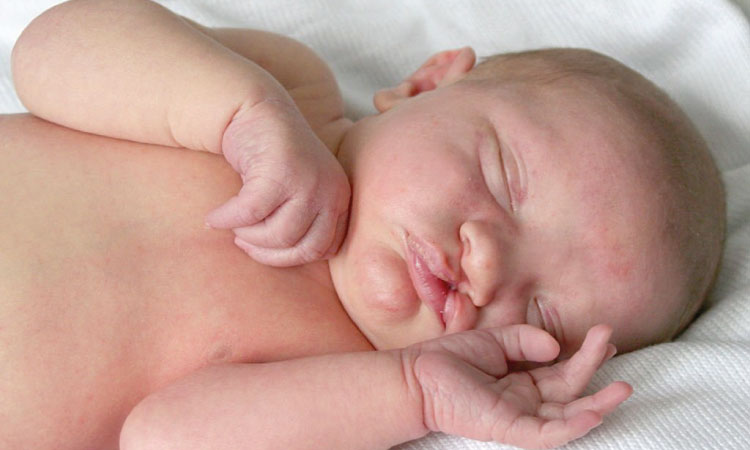The packaging for cigarettes packets states: “Smoking is injurious to health”. Even if your health isn’t sufficient reason for you to quit smoking, then the health of your unborn child should be. Smoking during pregnancy is harmful to you and your baby before, during, and after the birth of the baby. Tar, nicotine, and carbon monoxide are among the dangerous chemicals found in cigarettes. When pregnant, smoking significantly increases the chances of developing complications, some of which can be fatal. Learn more about the long-term effects of smoking while pregnant and the risks of smoking during pregnancy.
9 Harmful Risks Of Smoking During Pregnancy
To understand how dangerous is smoking during pregnancy, one must know the risks it poses. Following are 9 harmful risks of smoking during pregnancy:
1. Increases the risk of stillbirth and miscarriage
Wondering how does smoking affects pregnancy in the first trimester? Our panel gynaecologist Dr Ankita Patel Tayal says that both early miscarriage and stillbirth are associated with maternal smoking. This is often caused by the harmful chemicals in cigarettes. As the fetus develops rapidly during the first few days after conception. Chromosomes are highly susceptible to damage caused by chemicals like nicotine. Chromosomal problems are one of the most common causes of miscarriages.
Nicotine combined with hypoxia has a vasoconstrictive impact. This could decrease the supply of nutrients and oxygen to the embryonic tissues resulting in congenital defects. So heavy smoke exposure can potentially cause miscarriage1. In addition, smoking can affect the efficiency of the placenta. Thus, there will be a decline in the placenta’s ability to transport nutrients and oxygen to the fetus. These problems can also result in a miscarriage or stillbirth. As such, nicotine and CO may have adverse effects on fetal development2.
2. Increases the odds of preterm birth
Smoking during pregnancy increases the likelihood of giving birth too early3. Premature birth is when a baby is born 3 weeks or more before its due date. The final weeks of pregnancy are when the most significant growth and changes occur. A premature baby misses out on this growth spurt. A baby’s chances of suffering serious health issues increase the earlier it is born.
Babies born prematurely can suffer serious health issues like:
- Health issues resulting from low birth weight
- Developmental delays
- Difficulties in feeding
- Long-term breathing problems in childhood
- Cerebral palsy
- Issues related to hearing or vision
3. Adversely affects immunity
Pregnancy is a time when the immunity of women is compromised. Smoking worsens it even further. When a pregnant woman smokes, her immune system is compromised, making her body less effective at fighting disease.
In addition, smokers are more likely to suffer from respiratory infections. To a certain extent, this is due to the chemicals in cigarettes making it harder for their immune systems to fight viral and bacterial infections4.
Calculate Due Date With LMP
Related Reading: 11 Simple Ways To Boost Immunity During Pregnancy
4. Increases the risk of abdominal bleeding
Tobacco may contain several ingredients that cause changes in the arterial wall that result in blood vessel instability. However, it has been discovered that smoking doubles the risk of abnormal bleeding during pregnancy and delivery. The risk involves both the mother and the child5.
5. Increases the possibility of ectopic pregnancy

According to a study, nicotine can potentially bring about contractions in the fallopian tubes. Contractions can block the passage of an embryo. This can result in an ectopic pregnancy. A situation where a fertilized egg gets implanted outside of the uterus, usually in the fallopian tube or in the abdomen, is called an ectopic pregnancy. This can bring about life-threatening complications for the mother. Therefore, emergency surgery is performed to remove the embryo.
6. Placental issues
The placenta provides oxygen and nutrients to the developing fetus during pregnancy. Smoking is associated with several placental complications6. The most significant placental problems linked to smoking are:
- Placental abruption: This is a condition in which the placenta detaches from the uterus before delivery. Placental abruption can cause severe bleeding. It can be life-threatening for both the mother and the unborn child. Reattachment is not possible via surgery or treatment
- Placenta previa: The placenta previa condition is also linked to smoking7. The placenta normally grows towards the top of the uterus during pregnancy. This allows the cervix to remain open during delivery. Placenta previa is a condition in which the placenta covers the cervix partially or completely at the bottom of the uterus. Placenta previa can result in severe bleeding during pregnancy and delivery. When placenta previa occurs, the placenta may tear, denying oxygen and nutrients to the fetus
Related Reading: Drinking Red Wine During Pregnancy- Pros And Cons
7. Increases the risk of gestational diabetes
Smoking during pregnancy can increase the risk of pregestational diabetes mellitus (PDM) and gestational diabetes mellitus (GDM). The effects of smoking during pregnancy include inflammatory responses, oxidative stress, and insulin resistance in pregnant women8. The risk of gestational diabetes requiring insulin therapy has also been increased among women who smoke before pregnancy.
8. Increases fetal heart rate
Smoking during pregnancy affects the fetal heart rate. An increase in the fetal heart rate caused by maternal smoking is an indication that tobacco smoke toxins are passing through the placenta and into the fetus’ circulation9. Overly fast heartbeats in the fetus result in shallow contractions that do not pump enough blood. As a result, the fetus can suffer heart failure10.
9. Long-time effect on babies
If you are exposed to harmful substances like nicotine, carbon monoxide, and tar during pregnancy, it can reduce the amount of oxygen your baby receives. The chemicals pass through the placenta and umbilical cord and enter the bloodstream of the baby. Consequently, the baby’s heart, lungs, and brain can be damaged during pregnancy.
The unborn baby can suffer long-term consequences if you smoke while pregnant. These babies are likely to experience:
- Pulmonary problems
- An increased risk of asthma
- Low birth weight, which, in turn, is linked to heart disease, type 2 diabetes, high blood pressure, and other health conditions in adulthood
- Increased risk of being overweight or obese as a child
- An increased risk of hyperactivity and attention deficit disorders (ADHD)
Related Reading: 18 Foods To Eat To Increase Fetal Weight During Pregnancy
What Birth Defects Are Caused By Smoking?

Smoking during pregnancy raises your baby’s risk for birth defects. These include:
- Cleft lip
- Cleft palate
- Both of these problems can cause difficulty feeding and may require surgery for correction
- Congenital heart defects and problems with the structure of the heart
- Increase the odds of SIDS
The carbon monoxide contained in tobacco smoke prevents oxygen from reaching the fetus. Additionally, smoking while pregnant can cause tissue damage to the developing fetus, especially to the lungs and brain. This damage can last throughout childhood and into the teenage years11.
Is It Okay To Smoke One Cigarette A Day While Pregnant?
The risk to a fetus has not been proven to decrease significantly when you cut down on the amount of or strength of cigarettes you smoke. Therefore, Dr Ankita Patel Tayal, practising obgyn since last 10 years, firmly opines that it is much better to quit smoking as early as possible for your health and the health of your unborn baby. You can quit smoking at any time while pregnant.
Nevertheless, quitting during your first 15 weeks of pregnancy offers the greatest benefits for your unborn child. If you can quit smoking before your third trimester, you will minimize the possibility your baby may be born underweight.
Can I Undergo Nicotine Replacement Therapy During Pregnancy?
Pregnant women are advised to try quitting smoking without medication. For those who cannot quit, nicotine replacement therapy might help. Nicotine replacement therapy is available as a gum, lozenge, mouthwash, inhaler, or 16-hour patch. Even though nicotine replacement products are generally considered safer than smoking, remember that even a small amount of nicotine can cause harm to a baby in the womb. The pros and cons of using nicotine replacement therapy during pregnancy should be discussed with your doctor.
Given that continuing to smoke during pregnancy leads to harm, and that quitting has benefits, someone who cannot quit or is at high risk of continuing to smoke during pregnancy may benefit from nicotine replacement products. Smokers who smoke more than 10 cigarettes a day or those who have previously failed to stop smoking may fall into this category.
Related Reading: 6 Ways To Reduce The Risk Of Stillbirth
Wrapping up

More than four thousand chemicals are found in tobacco smoke, of which at least 250 have been linked to different health issues including cancer. Smoking can make getting pregnant more difficult. Additionally, even if you can get pregnant, smoking while you are pregnant can harm fetal development. Each pregnancy is different. Although you may have smoked in the past and conceived a healthy child, it will not necessarily happen again. The earlier you quit smoking during pregnancy, the better off your baby will be.
FAQs
It is not safe to vape during pregnancy. Nicotine is a toxic substance that harms a baby’s developing brain and other organs. Most electronic cigarettes (e-cigarettes) contain nicotine.
Moreover, e-cigarettes contain flavorings that might pose a health risk to your unborn baby.
Being a new parent can be stressful. Most women who give up smoking during pregnancy relapse shortly afterward. Support should be sought in such cases.
It is not advisable to smoke near a newborn. Breastfeeding moms should keep in mind that their babies will be exposed to nicotine and other substances through their breast milk if they smoke.
Second-hand smoke is comprised of smoke from a burning cigarette and the smoke emitted by a smoker. Smoking second-hand smoke is just as dangerous as smoking yourself.
Carbon monoxide, nicotine, and tar are present in greater amounts in the smoke that gets burned off the end of a cigarette or cigar than in the smoke that the smoker breathes in.
There are no safety standards for second-hand smoke. The chances of having a stillbirth, a low-birth-weight baby, a baby with birth defects, and other pregnancy complications are increased if you regularly inhale second-hand smoke while pregnant.
Additionally, newborns exposed to second-hand smoke may develop asthma, allergies, and more frequent ear and lung infections.


